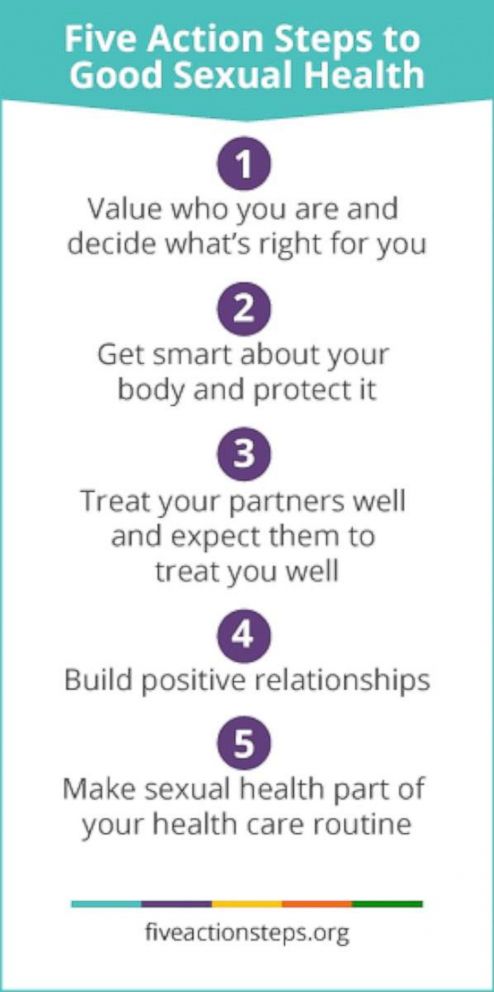Let's talk about sex: How to know you're in a healthy sexual relationship
Dr. Logan Levkoff and Shan Boodram share their tips.
Are you in a healthy sexual relationship?
The answer is a resounding no if you're not able to find fulfillment on your own and not able to voice your wants and needs, experts say.
“If we don’t value who we are as individuals, the sexual health of relationships and partnerships becomes near impossible,” said Dr. Logan Levkoff, a certified sex educator and nationally recognized expert in relationships and parenting.
Levkoff and Shan Boodram, a certified sex educator and host of Facebook’s “Make Up or Break Up” are part of an effort to redefine what it means to be sexually healthy.
I don’t go to a restaurant and just continue to pay money and hope to see what I get.
The educators partnered with the National Coalition for Sexual Health to launch the “Five Actions Steps to Good Sexual Health,” which focus on not just whether or not you used a condom, but relationship skills too.
"Valuing who you are and knowing what's right for you means if someone interacts with you in a way that doesn't work for you, you can be like, 'That's cool but it's just really not right for me,'" Boodram said.
"Or if they want to move at a pace that maybe for them feels really good, you can say, 'I totally get that. I respect that this is the way you operate, it's just not going to work for me,'" she added. "That is just a tool that I didn't pick up until my late 20s, and it was like discovering I had a superpower."
Finding your sexual "superpower" can happen no matter what your age or how many relationships you've had or not had.
When you stand up for yourself and set boundaries ... you have an easier time.
How to find your sexual 'superpower': Questions to check if you're in, or ready for, a healthy sexual relationship

Am I sexually healthy on my own?
What comes before the sexual health of a relationship is your own sexual health.
"Part of being sexually healthy means feeling good about your body, understanding how your body is supposed to function and not relying on the common images of what is beautiful or sexy," Levkoff said. "If I don’t feel good about myself, I’m certainly not going to stand up for myself. I’m not going to talk to someone else about my needs or getting tested."

Have I set my boundaries?
Set your boundaries the first time you meet your potential partner.
"I don’t go to a restaurant and just continue to pay money and hope to see what I get," Boodram said. "With everything in life, we’re very clear about what the transaction is going to be but when it comes to dating, I think a lot of young people feel uncomfortable."
Parents can teach kids about permission and consent starting even in preschool on topics like permission to use a toy.
If you're older and need practice, start small, like telling your Uber driver you'd prefer to listen to music than talk, advises Boodram.
"When you stand up for yourself and set boundaries, you see that people generally respect you and you have an easier time," she said.
Am I comfortable overcoming awkwardness?
The important thing to remember is that conversations about sex and pleasure and consent may be awkward, but that's not negative, Levkoff explained.
"Awkward means the value for speaking is that much greater," she said. "It’s just acknowledging, yeah, OK, so you’re not comfortable with it but it doesn’t mean you’re going to ignore it. You’re going to still act."
Need help? Try these phrases from Levkoff: "I’m not totally comfortable saying this" or, "This may come out as really awkward but I know that I care enough about this and I value this enough to push past it."
Is pleasure reciprocal?
This is simple because if there is not mutual pleasure, the relationship is unhealthy, even if it is a purely sexual relationship, according to Levkoff.
Boodram agreed, adding, "Getting smart about your body means knowing what works for you, pleasure-wise, knowing what your erogenous zones are, and then also knowing how to protect those special spaces."
Am I empowered to know my normal is normal?
At the core of nearly every question Levkoff said she gets as a sex educator -- whether it's about feelings, bodies, desires or interests -- is the question, "Am I normal?"

Her advice is to get rid of the word normal.
"You are normal for you. Whatever you want, however your body is, however you function is what is normal for you," Levkoff said. "So much of [not speaking up] comes from fear of someone saying, ‘No, your body, your feelings, your interests, your desires are not normal.’"
Do I feel balance?
Balance should be looked at as a big picture, not moment by moment.
"No one feels that they are putting in all of the emotional, sexual, intellectual work without any reciprocation," Levkoff said. "The balance also has to do with sexual health, things like protection, that both partners contribute to the protection and well-being of a relationship."
Is my partner willing to work through challenges?
How your partner responds to your honesty is a good litmus test of a partner.
"If you say to someone, ‘Look, this isn’t really working for me and I feel badly when this happens,’ and someone says, ‘Oh my God, I didn’t know that and let’s find a way to work on it,’ that is a partner that’s worth sticking around for to see if they can match our expectations now that we’ve shared what they are," explained Levkoff.

She added, "Even in a strictly sexual relationship, there are times when someone needs or wants may change. It’s in the how they do it that really matters."
Your personal sexual health checklist:
1. How do I feel about myself?
2. Am I happy with who I am?
3. Am I happy with my body?
4. Am I happy with my friendships?
5. Do I feel judged by my partner?
6. Do I feel better when my partner is around, or worse?
7. Do I feel like I’m heard, and that my voice is valued?
8. Am I getting what I want physically, emotionally and sexually?







